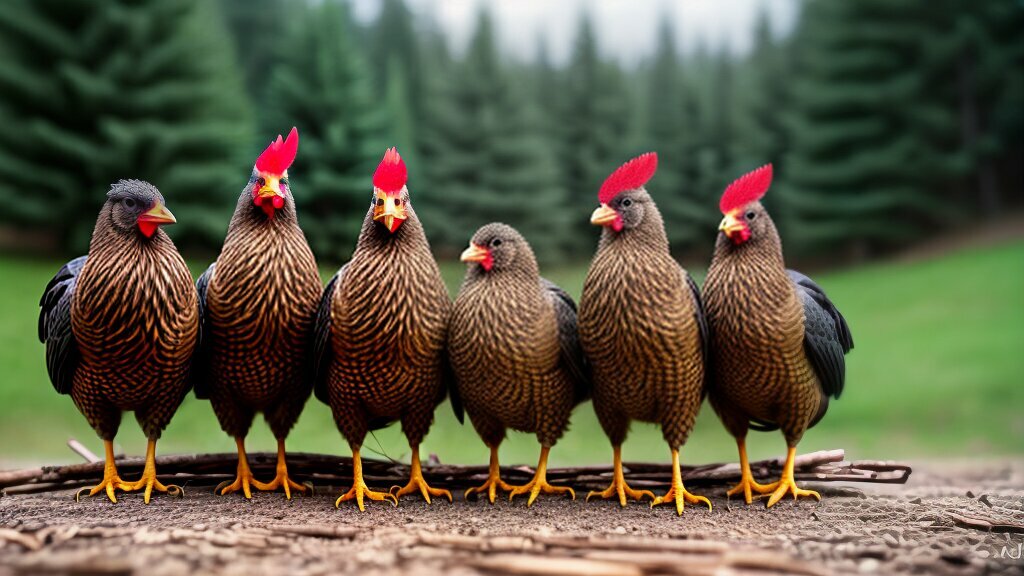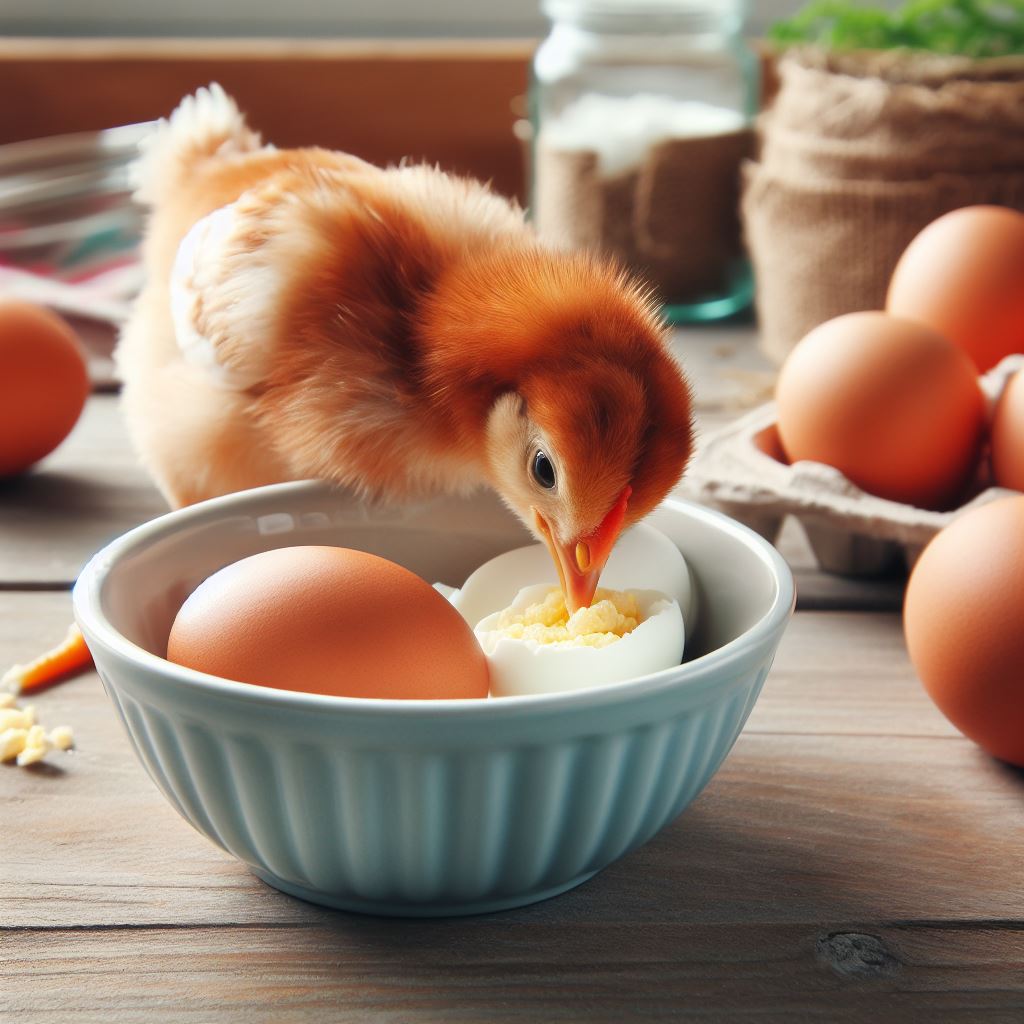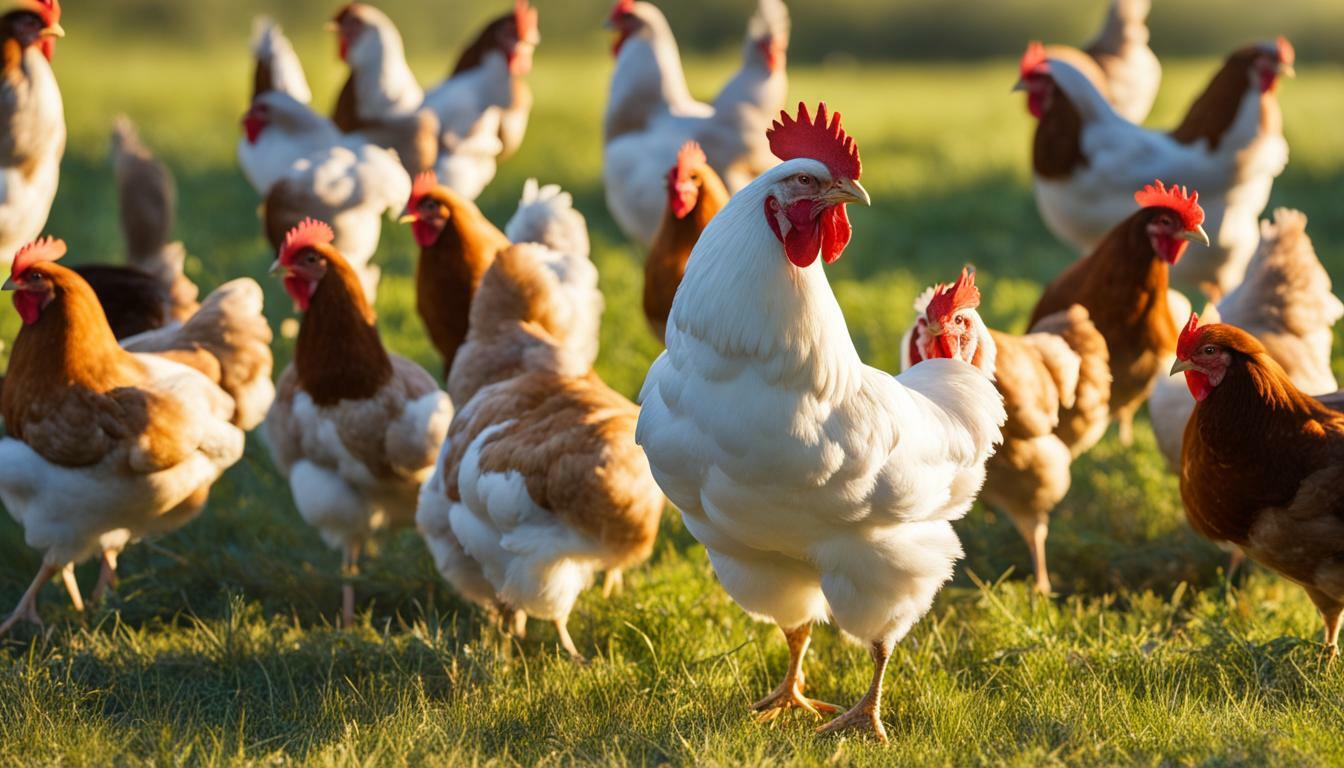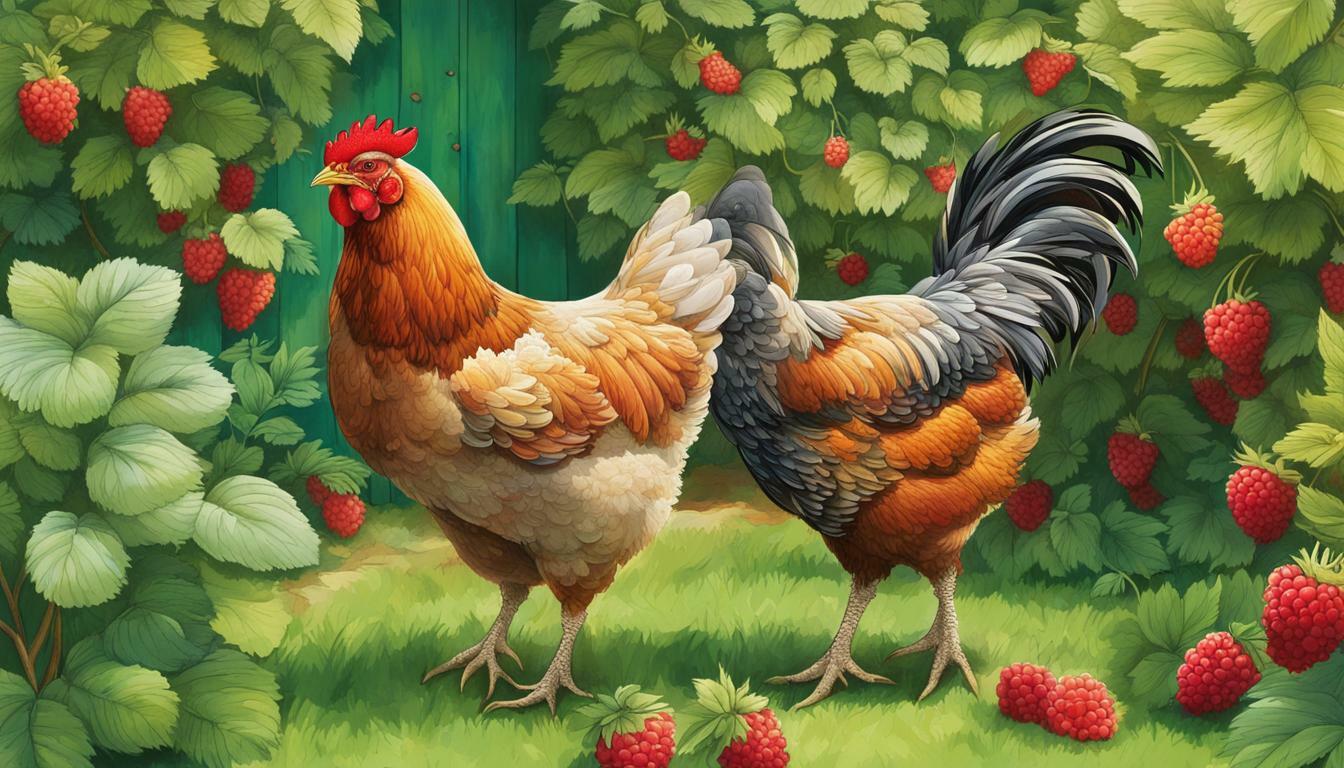Can Chickens Eat Pine Nuts? Facts & Tips

Table of content:
If you’re considering adding pine nuts to your chickens’ diet, it’s essential to know whether they are safe for consumption. In this section, we will explore whether can chickens eat pine nuts. We will provide factual information, tips, and guidelines for feeding pine nuts to your backyard flock.
Key Takeaways
- Pine nuts can be safely consumed by chickens, but precautions should be taken
- Understanding a chicken’s overall diet is important before adding new foods
- Feeding pine nuts may provide nutritional benefits to your flock
- Possible risks include allergies, choking hazards, and digestive issues
- It’s important to monitor your chickens’ response and adjust their diet accordingly
Understanding a Chicken’s Diet
To determine whether chickens can eat pine nuts, it is vital to understand their dietary requirements. A chicken’s diet comprises of various nutrients that must be present in a specific ratio to maintain optimal health and well-being. Their diet must include carbohydrates, protein, fats, vitamins, and minerals.
Chickens require protein to support their growth, repair tissues, and develop feathers. A protein deficiency can cause stunted growth and poor feather quality. Carbohydrates provide energy to keep chickens active, while fats store energy and help regulate their body temperature.
Vitamins and minerals play an essential role in maintaining a chicken’s health. A lack of vitamins and minerals can cause a range of issues, including bone disorders, reduced egg production, and weakened immunity.
Poultry nutrition is a vital aspect of raising chickens. Their diet directly impacts their overall health and well-being. It is essential to provide a balanced diet, including all necessary nutrients in the correct proportions.
Understanding A Chicken’s Diet
- Protein for growth and development
- Carbohydrates for energy
- Fats for energy storage
- Vitamins for health maintenance
- Minerals for health maintenance
A healthy, balanced diet allows chickens to thrive, ensuring they lead productive, healthy lives. By understanding their nutritional needs, you can provide a diet that helps your flock maintain optimal health.
The Benefits of Pine Nuts for Chickens
If you’re considering feeding pine nuts to your backyard flock, it’s important to understand the potential benefits they may offer. Here are a few reasons why pine nuts could be a healthy addition to your chickens’ diet:
- Rich in nutrients: Pine nuts are a good source of vitamins and minerals such as vitamin E, magnesium, and zinc, all of which contribute to your chickens’ overall health.
- Promotes feather quality: Due to their high-fat content, pine nuts may contribute to healthier, shinier feathers in your chickens.
- Increase egg production: Pine nuts are rich in amino acids, which are essential for egg production. Incorporating pine nuts into your chickens’ diet may help boost egg-laying frequency and quality.
While pine nuts are not a necessary component of a chicken’s diet, adding them in moderation can provide some nutritional benefits.
The Potential Risks of Feeding Pine Nuts to Chickens
While pine nuts can provide nutritional benefits to your chickens, it is crucial to be aware of the potential risks associated with feeding them these nuts.
Allergies
Just like humans, chickens can have allergies to certain foods. If you notice any adverse reactions after feeding your chickens pine nuts, such as difficulty breathing or swelling, discontinue feeding them immediately and seek veterinary advice.
Choking Hazards
Pine nuts are relatively small and can pose a choking hazard to chickens, especially if they are fed whole. To avoid this risk, it is recommended to crush or chop the pine nuts into smaller pieces before feeding them to your flock.
Digestive Issues
Pine nuts are high in fat, which can cause digestive issues in chickens if fed excessively. To prevent any digestive problems, make sure to feed pine nuts in moderation and as part of a well-balanced diet.
Overall, it is important to approach feeding pine nuts to chickens with caution, and always observe their response to the nuts. By taking these precautions, you can successfully include pine nuts as part of your chickens’ diet while avoiding any potential risks.
Best Feeding Practices for Chickens and Pine Nuts
If you’ve decided to add pine nuts to your chickens’ diet, it’s essential to do so safely and in moderation. Here are some tips for the best feeding practices:
Start Slowly and Monitor Their Response
Introduce pine nuts gradually and monitor your chickens’ response. Observe them for any signs of allergies, choking hazards, or digestive issues. It’s best to start with a small amount and increase the quantity over time.
Consider Pine Nuts as a Treat
While pine nuts can offer nutritional benefits, they should not replace a well-rounded diet. Consider pine nuts as a treat and offer them in moderation, similar to other treats such as fruit or vegetables.
Stick to Recommended Portion Sizes
It’s essential to feed your chickens the right amount of pine nuts. A rough guideline is around 1-2 tablespoons of pine nuts per bird per week. Overfeeding can lead to obesity and other health issues.
Offer Whole Pine Nuts or Crushed Pine Nuts
You can offer whole pine nuts or crushed pine nuts, depending on your chickens’ preference. Some chickens may prefer whole nuts, while others may prefer crushed nuts. Ensure that the nuts are fresh and have not gone rancid.
Provide Access to Clean Water
It’s crucial to provide your chickens with clean water at all times, especially when introducing new foods to their diet. Pine nuts can be a choking hazard, and access to water can help prevent such incidents.
By following these best feeding practices, you can safely incorporate pine nuts into your chickens’ diet. Remember to observe their response and adjust their diet accordingly.
Other Nutritional Options for Chickens
While pine nuts can offer nutritional benefits to your chickens, it is essential to provide a well-rounded diet to ensure optimal health and productivity. Here are some other nutritional options to consider:
- Vegetables: Fresh vegetables such as leafy greens, carrots, and sweet potatoes can provide essential vitamins and antioxidants.
- Fruits: Fruits such as melons, berries, and apples can offer a natural source of sugar and vitamins.
- Protein: Chickens require protein for growth and egg production. You can provide protein through sources such as mealworms, crickets, or cooked eggs.
- Grains: Whole grains like barley, oats, or wheat can provide carbohydrates and fiber in your chicken’s diet.
It is crucial to provide a balanced diet that covers all of your chicken’s nutritional requirements. A diet with a variety of nutritional options will ensure a healthy and productive flock.
The Importance of Observing Your Chickens’ Response to Pine Nuts
While pine nuts can offer nutritional benefits for your flock, it is important to monitor their response to this new addition to their diet. Each chicken is unique, and their reaction to certain foods can vary. Some chickens may develop allergic reactions or digestive issues, while others may thrive on the added nutrition.
The first step in observing your chickens’ response to pine nuts is to introduce them gradually into their diet. Begin with small portion sizes and monitor their behavior and stool for any signs of adverse reactions. Pay attention to any changes in their appetite, energy levels, and overall health.
If you notice any signs of allergies such as itching, swelling, or respiratory distress, remove pine nuts from their diet immediately and consult with a veterinarian. Similarly, if your chickens experience diarrhea, vomiting, or constipation, it may be a sign that they are not tolerating the pine nuts well.
It is also important to note that pine nuts may interact with certain medications or supplements, so if your chickens are taking any medication, consult with a veterinarian before introducing pine nuts into their diet.
By observing your chickens’ response to pine nuts and adjusting their diet accordingly, you can ensure that they are receiving the best nutrition possible while avoiding any potential health issues.
Conclusion
In conclusion, chickens can safely consume pine nuts as part of their dietary options. However, it is important to understand their overall diet requirements and nutritional needs before introducing any new foods. Pine nuts can offer potential benefits such as improved feather quality and egg production, but it is crucial to monitor their response and ensure their overall health and safety.
When feeding your chickens pine nuts, it is recommended to follow best feeding practices, including feeding in moderation and monitoring their response for any signs of allergies or digestive issues. Additionally, offering a well-rounded and balanced diet is essential for the optimal health and well-being of your flock.
Remember to observe your chickens’ response to pine nuts and adjust their diet accordingly. With proper precautions and observation, pine nuts can be a healthy and nutritious addition to your chicken’s diet.
Welcome. I’m Adreena Shanum, the proud owner of this website, and I am incredibly passionate about animals, especially poultry. I founded adreenapets.com as a labor of love, stemming from my desire to share my knowledge and experiences with poultry enthusiasts worldwide.




